
Culture
23:21, 18-Jun-2018
Dragon Boat Festival: Traditional Tibetan horse racing held in Shangri-La
By Yang Jinghao, Zhang Kai, Luo Caiwen
02:30
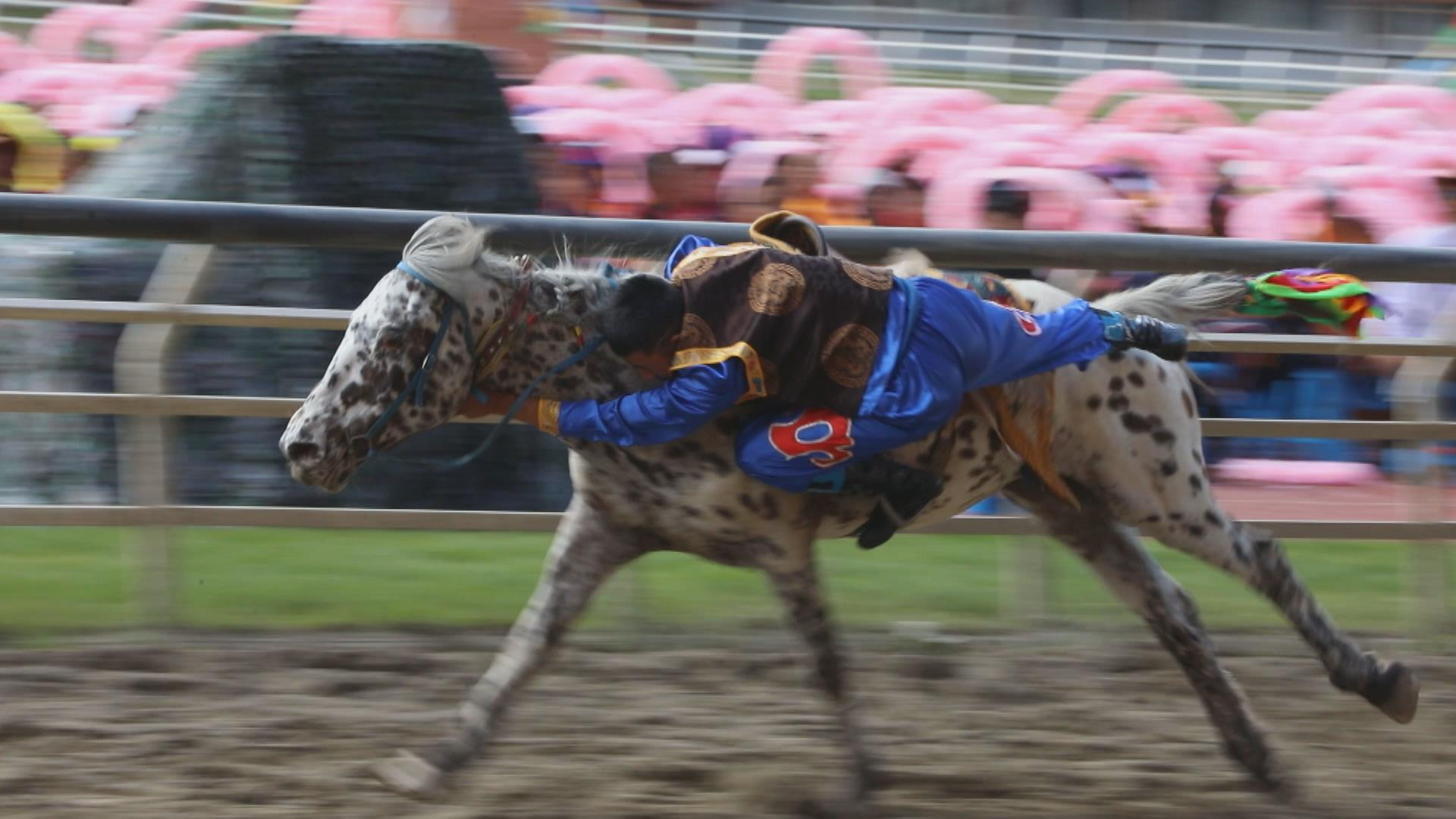
Standing on a galloping horse, then making a handstand, or even a human pyramid… When many people across the country are celebrating the traditional Duanwu Festival competing in dragon boat races, people in the city of Shangri-La are marking the special day in a unique way – showing off their stunning horsemanship.
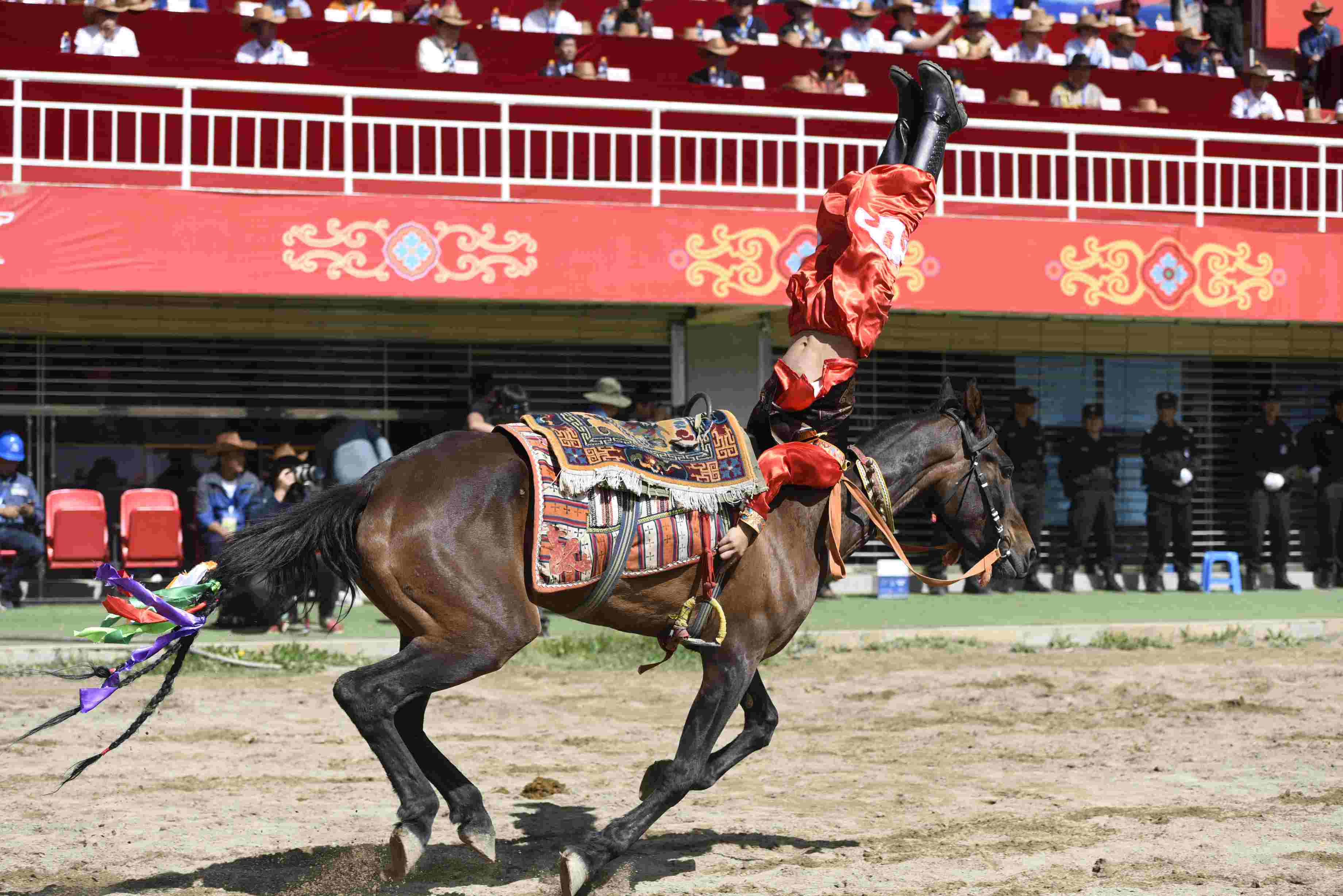
A rider competes in the race on Monday. /Photo by Zhang Yongqiang
A rider competes in the race on Monday. /Photo by Zhang Yongqiang
On Monday, the annual Shangri-La Horse Racing Festival kicked off in the popular tourist attraction, in southwest China's Yunnan Province, with various feats on horseback astounding the spectators.
"This is my second time taking part in the performance. I feel very honored to spread our ancient and valuable Tibetan horsemanship culture to guests from different places," Byms Ba Chos Pel, a local horseman, told CGTN.
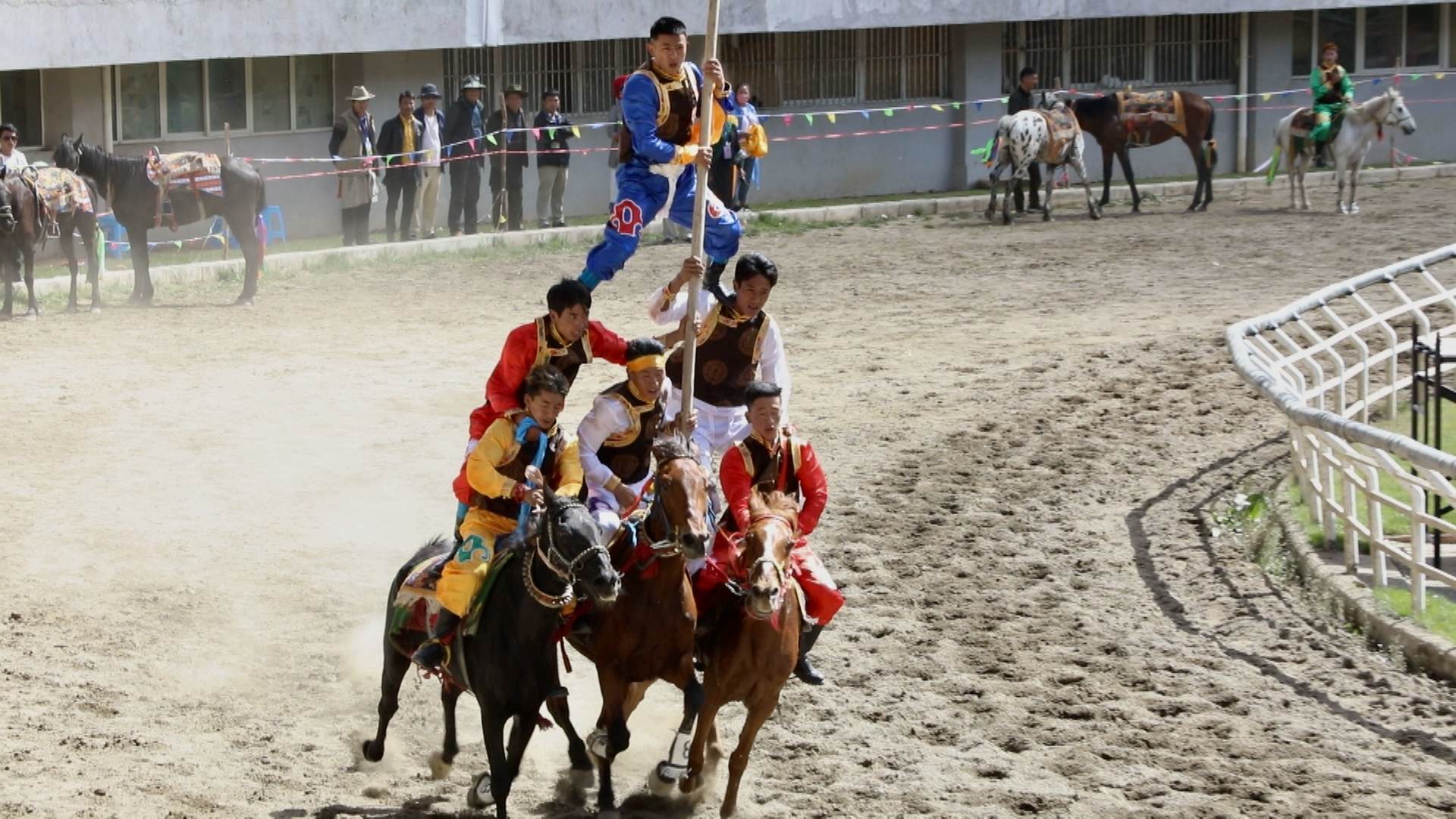
Tibetan horsemen from the city of Shangri-La show off their horsemanship at the opening ceremony. /CGTN Photo
Tibetan horsemen from the city of Shangri-La show off their horsemanship at the opening ceremony. /CGTN Photo
The spectacular show came as a prelude to the festivity as a whole. A horse race later in the afternoon brought together riders from many ethnic minority groups and created a wave of excitement for the spectators.
"I feel great today. Though we didn’t win the championship or the top prize, I’m satisfied with our performance," said Blo Bzang Phrin Las, a Tibetan competitor.
The annual competition consists of some 20 different races according to the different breeds of horses and race distances, with some featuring daring stunts like archery on horseback.
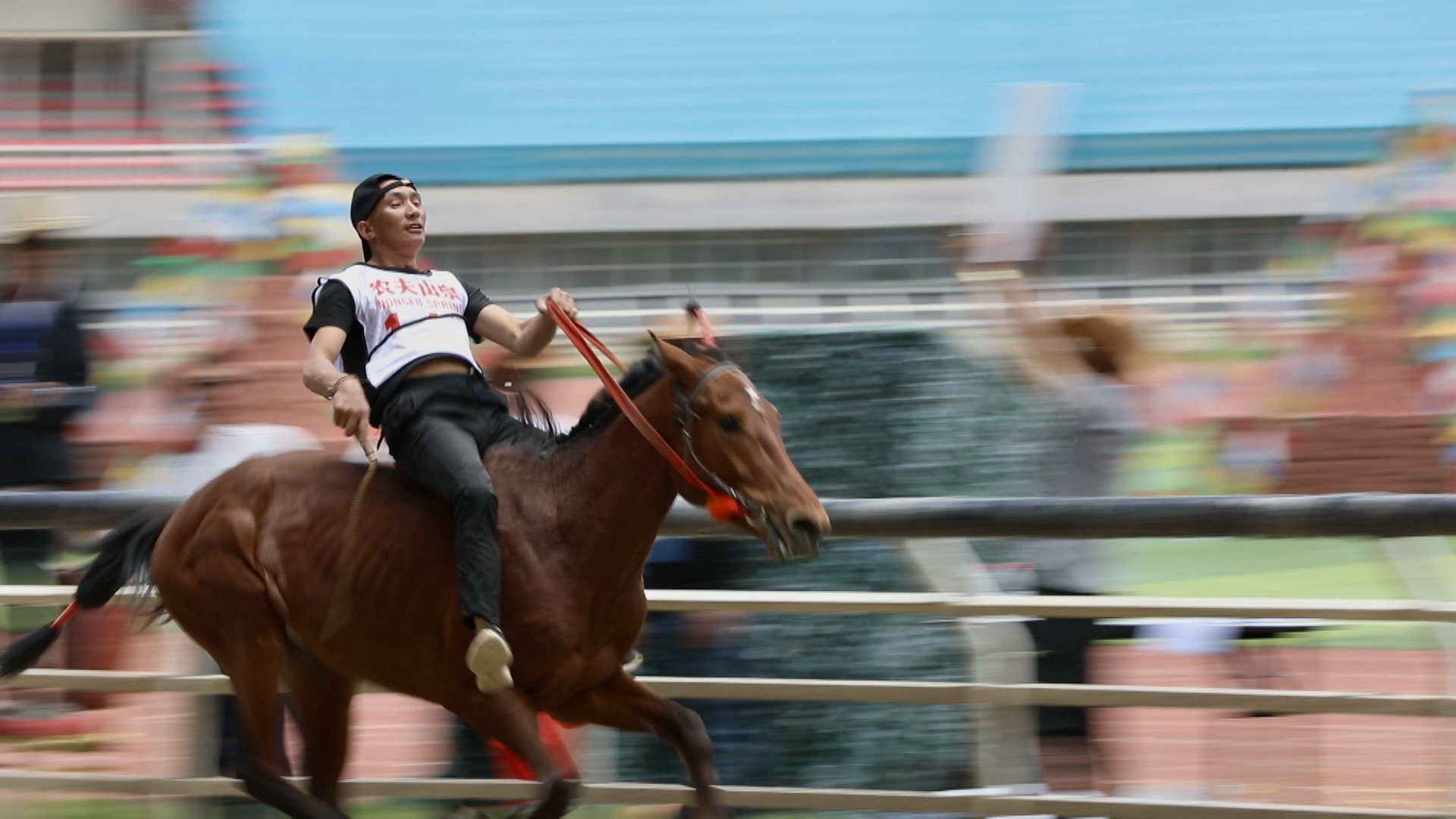
A rider competes in the race on Monday. The event will last until Wednesday. /CGTN Photo
A rider competes in the race on Monday. The event will last until Wednesday. /CGTN Photo
Horses have played a unique role in Tibetan people’s lives since ancient times. The animal used to serve as the most important means of transportation for them, and is an indispensable element in their religious beliefs.
So the grand rally is a great opportunity for the horsemen to display their culture.
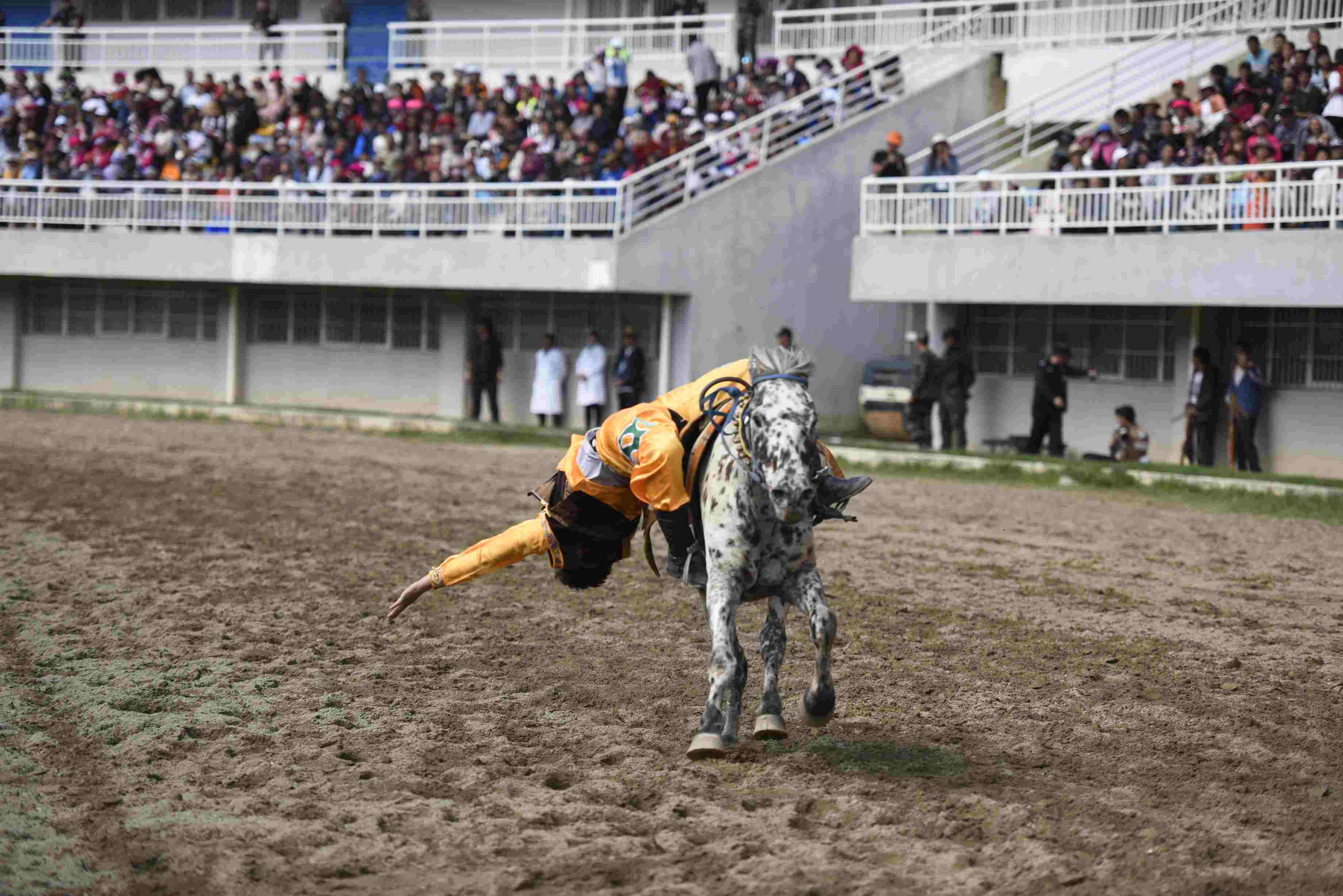
A rider competes in the race on Monday. /Photo by Zhang Yongqiang
A rider competes in the race on Monday. /Photo by Zhang Yongqiang
"Horse racing has been my family tradition. I can say that I grew up on the horse's back. I’m now a professional racer and I’ll carry on the undertaking. I think such racing is not only conducive to promoting the ethnic culture, it will boost the development of the sport in our country," said Yu Xueqing, a rider of Yi ethnic minority.
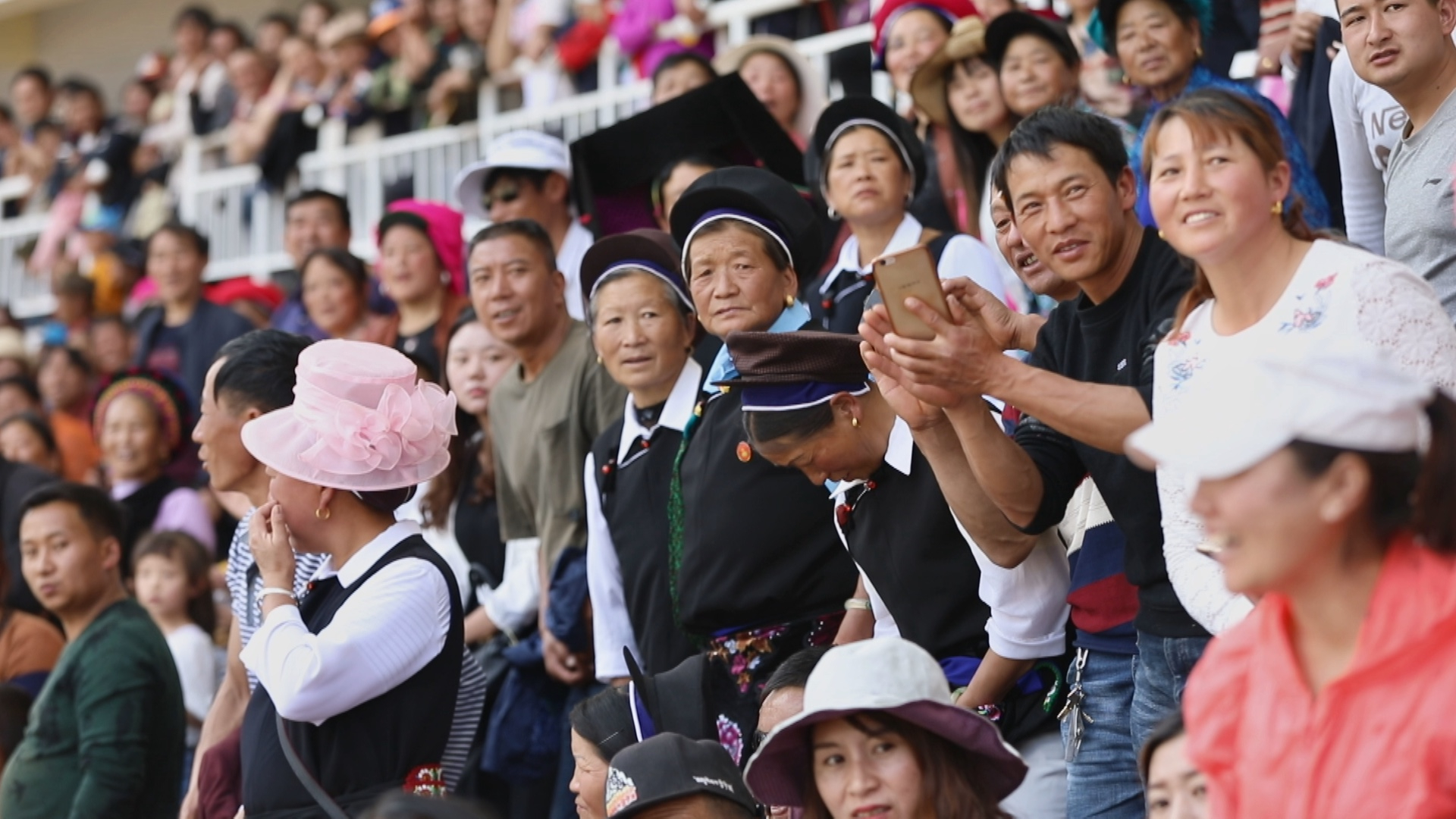
Spectators enjoy the horse race on Monday. /CGTN Photo
Spectators enjoy the horse race on Monday. /CGTN Photo
With their original functions being replaced by modern technologies, horses now play a reduced role in Tibetans' lives. And this has aroused some locals’ concerns.
"I hope the age-old traditions can be preserved and that horse-riding skills be passed down to the younger generations. I’m happy to see that the annual event is rekindling people’s passion under the government support and the number of horses here is increasing again," said Vod Mo, a Tibetan woman who operates a horsemanship club in the city.
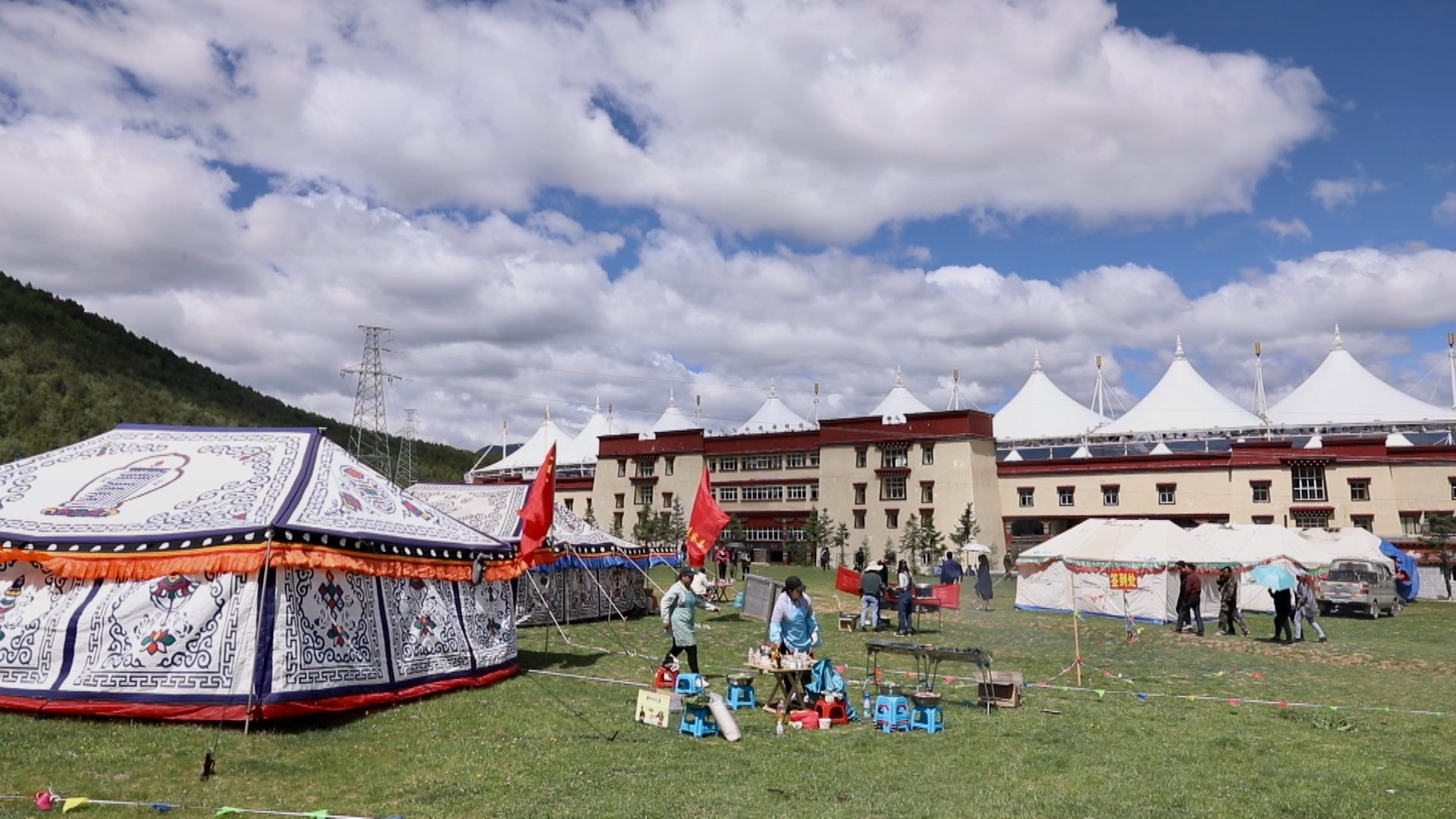
Local people set up tents near the racing course. /CGTN Photo
Local people set up tents near the racing course. /CGTN Photo
On this special occasion, many spectators set up tents near the racing course and have parties. No Zongzis were served, but barbecues and local beers produced a unique flavor.
The competition is set to conclude on Wednesday.

SITEMAP
Copyright © 2018 CGTN. Beijing ICP prepared NO.16065310-3
Copyright © 2018 CGTN. Beijing ICP prepared NO.16065310-3